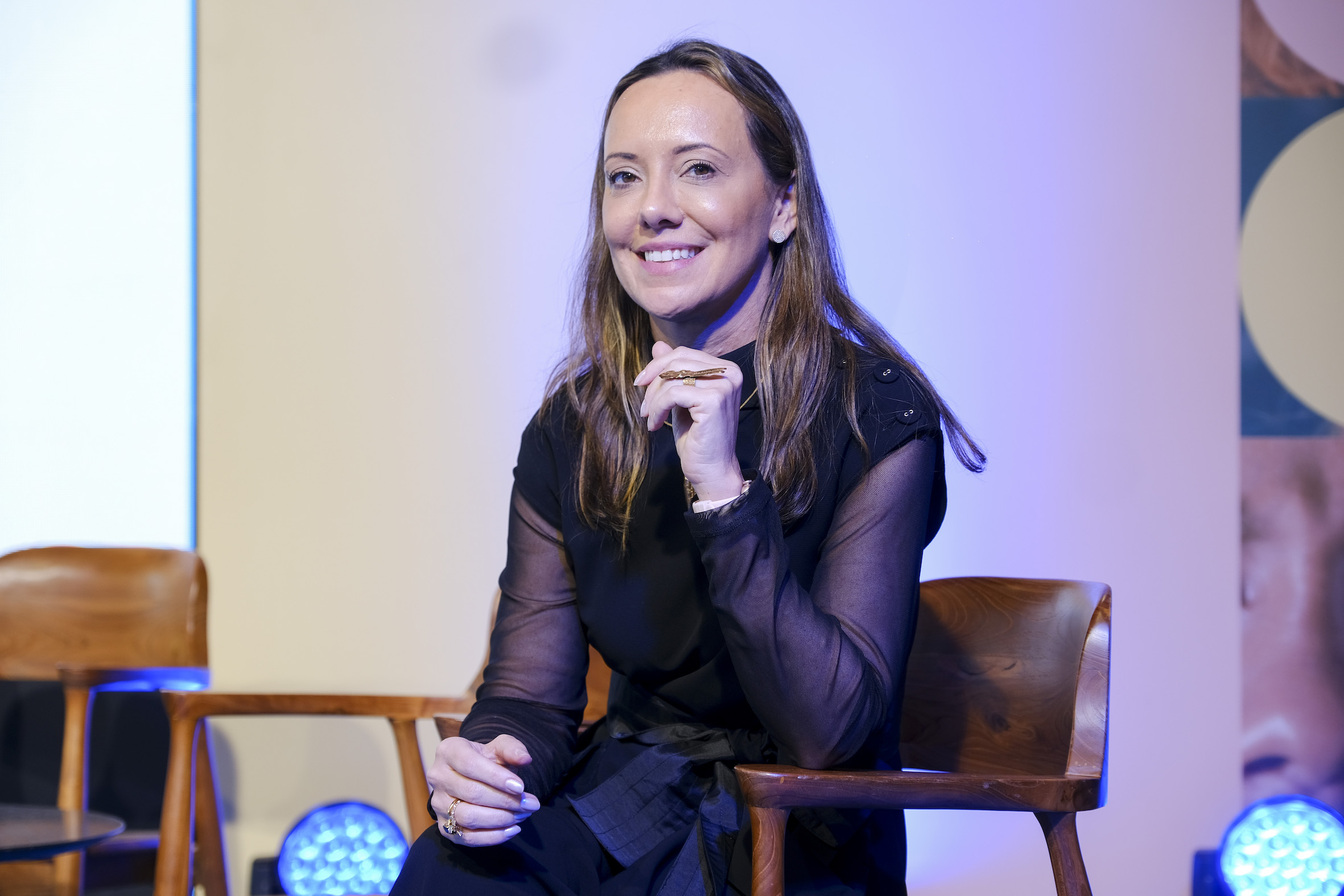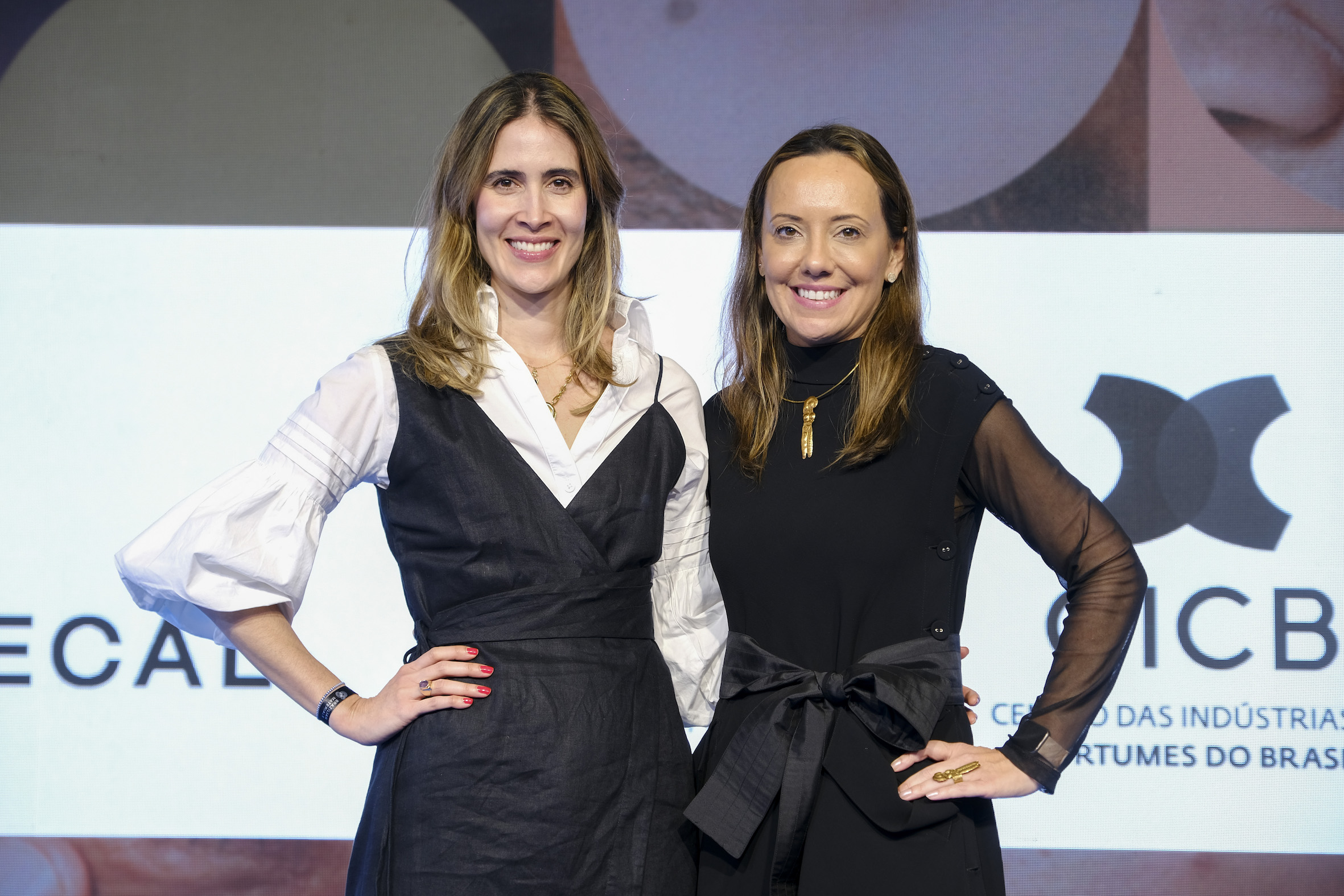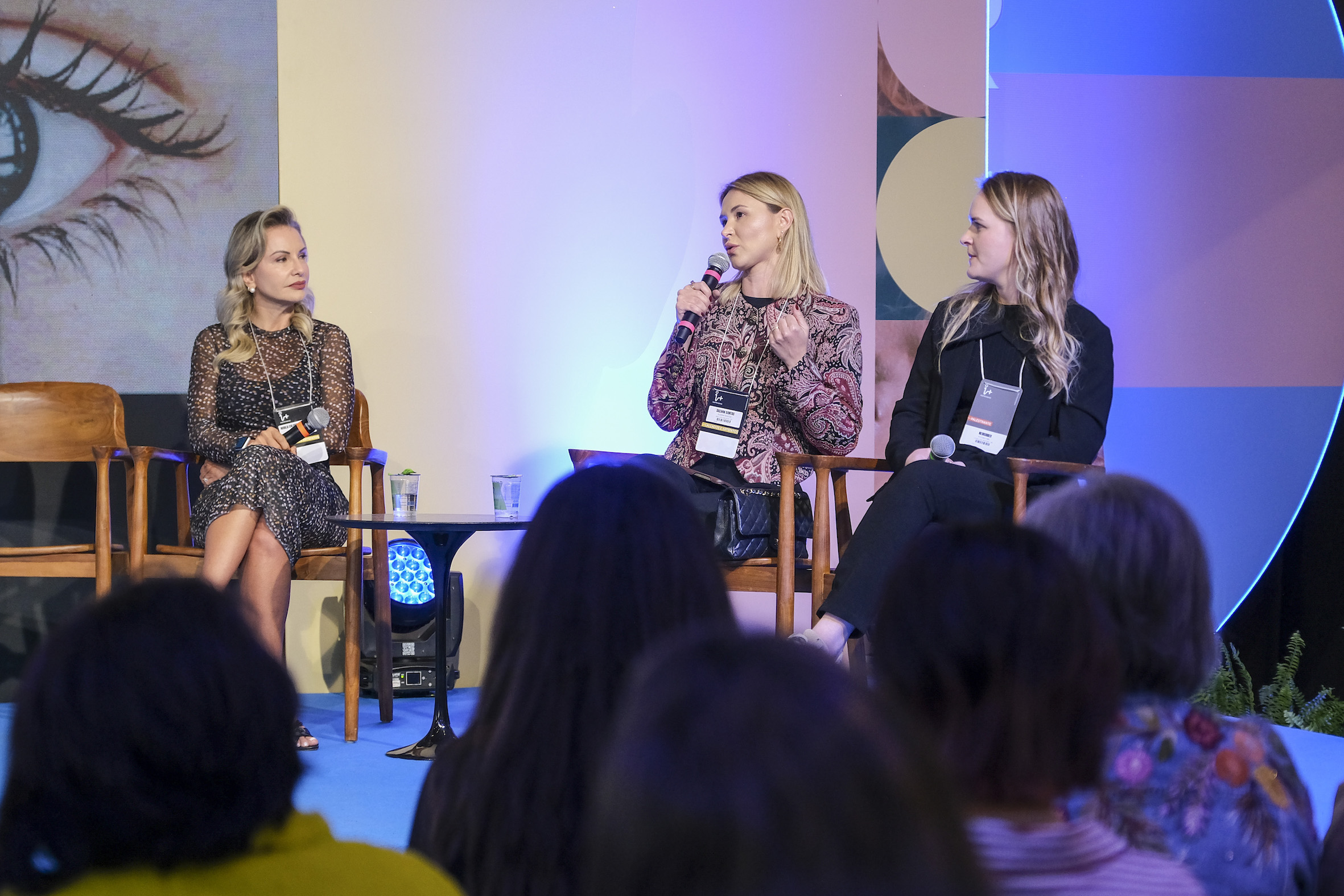In the vibrant halls of the 32nd edition of INSPIRAMAIS, the leading trade show for materials launches for the footwear, apparel, furniture, automotive upholstery, decoration, and jewelry industries in Latin America, that took place on July 15th and 16th at the Pro Magno Event Center in São Paulo/SP, the spotlight turned toward something more powerful than product—purpose. A compelling panel brought together three trailblazing women who are not only shaping the footwear industry but also redefining what it means to lead with authenticity and vision.
The panel showcased women from three distinct regions of Brazil and specialties of footwear. Their work is a testament to innovation grounded in empathy, adaptability, and cultural insight.
Footsteps of Change: A Trio of Trailblazers
Vania Mestriner – World Colors Brasil
Specializing in children’s footwear, Vania faces the challenge of designing for an ever-evolving audience—young girls who now wield influence through their digital-savvy preferences. Fewer collections mean deeper research, and the developmental process requires understanding that a three-year-old with a tablet can already shape trends.
Suzana Santos – Suzana Santos Calçados
In the high-pressure world of women’s fashion, Suzana produces up to eight collections a year—a whirlwind of creation and launches. The biggest challenge? Time. Design cycles are tighter, seasons are flipped across Brazil’s vast geography, and inspiration must keep pace. And through it all, she navigates motherhood with twins, embodying the delicate balance so many women know: embracing each life phase while pursuing excellence.
Rodaika Diel – Sugar Shoes (Coca-Cola Private Label)
For sixteen years, Rodaika has spearheaded the development of Coca-Cola’s private label footwear. Her challenge lies in proving that private label creation is not just about mass production—it’s about sustainability, innovation, and co-creation. Materials must be ethically sourced, aesthetics continually refreshed, and collaboration elevated to match the brand’s global identity.
The Feminine Advantage
As Suzana boldly declared during the session, “We don’t want to be like men. We want to be ourselves.” These women own their strengths—intuition, maternal perspective, and a holistic 360-degree view, said Silvana Dilly, Superintendent of Assintecal (the Brazilian Association of Companies for Components in Leather, Footwear and Artifacts) and a tireless advocate for female representation in fashion. Silvana emphasized that women often focus on their limitations rather than their potential. But the truth is, having less time doesn’t mean having less value. It means leveraging what you do have with creativity and clarity.
Each story shared underlines a key message: power lies in embracing your current season of life while nurturing your ambitions. Whether raising twins, managing innovation cycles, or decoding market preferences from a toddler’s requests, these women show that leadership isn’t linear—it’s layered, intuitive, and profoundly personal.
Collaboration Over Competition
Dilly pointed out that Inspiramais continues to model cooperation—connecting sectors, countries, and stories. From textile alliances to intercultural partnerships, the event fosters unity in design. Silvana's leadership and Assintecal’s vision have made space not only for product, but for purpose—sharing Brazil’s know-how with the world while embracing the creative wealth of others. For example, in this current edition, Assintecal invited Marcela Caicedo Rio, President of the Colombian Association of Footwear, Leather and its Manufactures (ACICAM), to explore possible alliances, business opportunities between the two associations.
In the often-turbulent terrain of global fashion, the voices of these women offer not just solutions, but soul. Their insights are a blueprint for navigating industry with grace, grit, and generosity. These panelists remind us: the most powerful soles are those that walk with conviction, creativity, and compassion.
And at Inspiramais, this spirit of collaboration isn't just anecdotal—it’s foundational. As Silvana Dilly emphasized, the fair’s unique management model is built on cooperation over competition, bringing together diverse sectors, international partners, and creative communities. From textile and footwear associations to cross-border alliances like Colombia’s Acicam, Inspiramais fosters a culture of shared innovation. It’s not just about promoting Brazilian materials—it’s about exchanging know-how, honoring artisanal heritage across borders, and building the future of fashion together.




